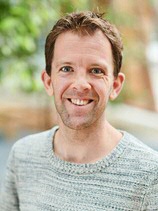Sustainable development potentials and pathways for biobased economy options in Brazil | Tjerk Lap

Field | Discipline
- Energy and Fuels
- Agriculture, Multidisciplinary
- Environmental Sciences
Expertise
- Energy Modelling
- Biobased Economy
- Land use systems
- Bioenergy
- Integrated Sustainability Assessment
Summary
Within the next decades the world will face major threats like global warming, environmental pollution and resource depletion. Human reliance on fossil resources is seen as one of the major contributors to this global change. To ensure a sustainable future we should shift away from a fossil-based society towards a sustainable society. One of the potential solutions for the transition to a sustainable society is the so-called ‘biobased economy’ (BBE). The BBE is an economy fueled by plant-based feedstock to produce chemicals, materials and energy instead of fossil based resources.
Brazil has a very large potential for biomass production. Currently it is already the second largest producer of bio-ethanol for fuels and the production of bio-ethanol is expected to increase significantly. However, there are also concerns regarding the sustainability of bioenergy from sugar cane and soy beans; environmentally due to (indirect) land use change and resource use (e.g. water and fertilizers); and socially due to competition with food and decrease of biodiversity.
In my project I will show potential pathways for a sustainable BBE in Brazil. In order to do so an integrated system analysis approach is used to quantify the potential pathways. The figure below shows the different fields of research and their mutual relations. The research exists of five different steps:
-
The energy system: the first step deals with the (future) role of bioenergy within the Brazilian energy system. An energy optimization model is created (based on the existing Brazilian energy system) to give insight in the role of bioenergy in the future energy system under different scenario’s. Competition between several energy carriers and conversion technologies
-
Land use scenario’s: management of land is key to the sustainability of the BBE. A spatial explicit land use model (PLUC) will provide insight in the GHG balance of biomass supply chains and shows the potential available land for biomass production.
-
Biomaterial chains: a LCA study in conducted to show the environmental and economic impact of different supply chains for a selection of biomaterial end-use products. The results will be integrated into the energy model to assess the competition between for feedstock supply between energy and materials.
-
Biomass supply and demand: In this step different scenario’s on supply and demand for biomass resources will be created and analyzed. The scenarios’ results will be used as input for the energy and material modelling framework. This will make clear what deployment of different biomass sources seem attractive for different markets.
-
Sustainability assessment: based on the results of the previous steps the impact of the scenarios can be quantified. The total GHG balance will be calculated and split up into the budget of the energy system, materials and the agricultural system (carbon stock changes). The impacts on the local water system and the biodiversity will be assessed as well.
The final result of the research will provide insight in the potential of the BBE in Brazil and how it interacts with other existing systems. Furthermore it will show to what extent the BBE can contribute to a sustainable society.
The research is carried out in collaboration with the UNICAMP university of Campinas in Brazil. The third step is carried out by Pedro Gerber Machado, a PhD student from UNICAMP. The integration of the research results is done together.
Supervision by
-
Promotor: Prof. Dr. André Faaij | Integrated Research on Energy, Environment and Society - IREES | ESRIG, University of Groningen.
-
Co-promotor: Dr. Floor van der Hilst | Copernicus Institute, Utrecht University
-
Co-promotor: Dr. René Benders | Integrated Research on Energy, Environment and Society - IREES | ESRIG, University of Groningen.
More information and contact details can be found on the personal profile of Tjerk Lap
| Last modified: | 18 March 2025 2.54 p.m. |
